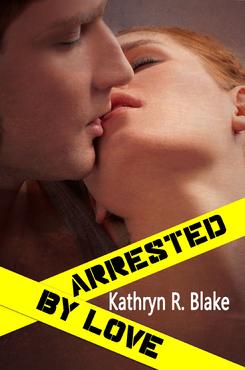The following is a list of time wasters in business settings that I found at
http://www.business-personal-coaching.com/top10timewasters.html . Since writing, if you're serious, should be treated like a business, I looked at this list from that perspective, and was surprised by just how many of them fit. Now, each one of us works differently, so the places where I find myself just "spinning my wheels" may not apply to you. However, looking through my list may prompt a few "time wasters" of your own. Since one of my New Year's resolutions focused on being more productive this year, I thought this would be a good exercise for me to undertake. Below is the business list of the top 10 Time Wasters.
1. Lack of planning, prioritizing and focus.
2. Procrastination.
3. Interruptions.
4. Lack of delegation.
5. Meetings.
6. Crisis management, fire fighting.
7. Telephone, email and Internet.
8. Not saying 'No'.
9. Lack of organization and untidiness.
10. Not enough time-off or time for yourself.
Below are the top five activities that keep me from achieving my writing goals.
1. Internet, email, Telephone.
Okay, I should probably include my blog in this list, but I'm going to leave it under the vague category of the Internet. First off, I'm going to say that the Internet is evil in my opinion. Now, by that I don't mean to say that Satanists are plotting to take over the world behind the Internet. It's more like a time vampire. While under its spell, you give it all your time and find yourself thoroughly enjoying the experience. And that's evil. Plain and simple. Email is the Internet's enabler. I receive an email on a subject that captures my interest, and the next thing you know I've spent three hours reading and delving into topics that have absolutely nothing to do with my novel. I suppose I could say that "it's all gist for the mill," but I think that's just rationalizing.
Lastly, for me, is the telephone. I actually don't get many phone calls, but the ones I do get, or make, usually cost me hours of time. But social connections are important, and I'm not quite ready to give them up, yet. And when I think about it, all three things in this section serve an important purpose in my life, so I just have to put them on a diet and try not to let them consume so much of my time and energy.
2. Lack of planning, prioritizing and focus.
This is where the plotter versus pantzer conundrum exists for me as well as effective time scheduling. I find I'm much more productive if I start out by plotting my story. It's not as much fun, in some ways, but it cuts down on the dead time, or the time spent reworking a section where I totally ignored my story objective. (Yeah, that scene in the department store where the heroine goes on an impulsive shopping spree and spends way too much money was fun to write, and seemed like a good idea at the time, but had nothing to do with her getting reunited with her husband). Prioritizing and focus go hand in hand for me. If I'm prioritizing properly, then my focus is much better aligned with my goals.
3. Interruptions, crisis management, fire fighting.
These go together for me. Most of my interruptions are due to crisis management and fire fighting. I think this is especially true if you have children. I only have one child, and he's the adult male I married. He does some very sneaky things to get my attention, and they are invariably not the emergencies he's made them out to be, but that's another story.
4. Lack of organization, untidiness.
I am not a "neat freak" by any stretch of the imagination, although I am trying to get more organized because I spend way too much of my time searching for something that I just saw but can't remember where I put it. Organization is the key, and I'm really working on trying to stay organized, so I don't waste so much time in this manner.
5. Procrastination.
This is more writing avoidance for me. Why am I suddenly inspired to pick up the living room and give it a thorough dusting during my allotted writing time? I have time set aside for housekeeping (not much time, I'll grant you, but nonetheless it is on my schedule). Writing time should not be spent on other activities. I should probably put that on a plaque above my desk (even though it is passive voice and a negative statement to boot). I often find myself procrastinating when I am stuck at a certain point in my book (see plotting above). If I have my plot sketched out, I usually don't find my main character wandering about in department stores where she shouldn't be shopping in the first place. So, for me, procrastination is a direct result of improper planning.

I still have a problem saying "no," but I've gotten better at it, so it's not the great time waster it once was, and it wasn't so much a time waster as it was a time consumer. So, that's it for me. I know if I concentrate on reducing my time spent on the five items above, I'll get a lot more writing done. Oh, I did mention my blog, too, right? Um.... Looks like I have to go now. But before I slink back into the shadows, I want to leave you with a list of other articles that I found (um, on the web) that you might find fun, helpful or just another creative way to waste your time. Bye.



























